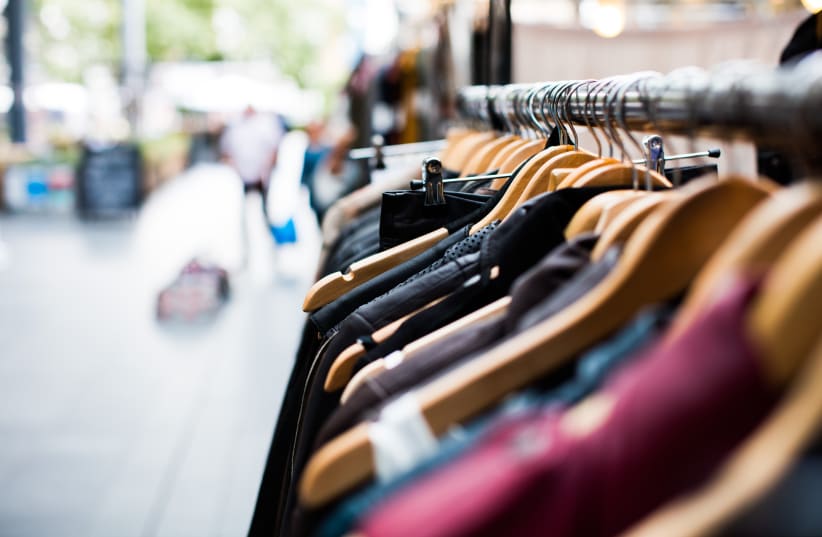Over 80 billion garments are produced each year across the globe, at a 400% increase compared to 20 years ago, according to statistics from the Sustain Your Style’s 2017 “Fashion Impact Report.” This leads to an average of 35 kg. of textile waste being generated per person, per year in countries such as the US. On average, a garment is only worn seven times before being thrown away.
As a result of fast fashion, the fashion industry is the second largest polluter in the world after the oil industry, and contributes more to climate change than international aviation, according to the House of Commons Environmental Audit Committee in 2019. The damage is only increasing as the industry grows.
The tremendous waste in the fast fashion industry results in over $500 billion being lost every year due to “clothing underutilization and the lack of recycling,” the Ellen MacArthur Foundation reported in 2017.
That is where Shareitt comes in.
Founded in 2018 by co-founders CEO Michael Malul and Arie Ben David, Shareitt is an ecommerce platform that allows users to exchange used items (clothes, books, or household appliances) with a twist.
Instead of money, Shareitt has an internal points system, allowing users to “buy” items with points that can be earned several ways.
An automatic balance of 50 points is added to every new user’s account, and with these users can begin trading items, uploading objects they wish to sell, and/or buying others in return. The point system is measured according to real-world value, with each point being considered the equivalent of one shekel. Users can then value their items at the number of points they wish to sell it for.
Speaking to the Magazine, Malul explained the creative vision behind the app, and the issues he pinpointed in his own life that inspired him to create it.
“The idea came from having a family and seeing our children exchanging their clothes, books and toys all the time with each other,” he observed.
According to the crowd-sourced global database numbeo.com in November 2021, the average Israeli family of four will spend NIS 12,345.72 ($3,987.22) on monthly expenses, excluding rent.
The cost of children’s clothing may contribute to a significant portion of this sum, as financial planners estimate that the cost of clothing for children will average NIS 150 (roughly $50 a month) per child. While this may not sound like a lot, as children grow, clothes must be constantly replaced, causing the numbers to add up over time. In addition to the clothing costs, a family will have numerous other everyday expenses.
“The people who use the app most are parents,” Malul said. “They get their children clothes, toys, new books, the right books for schools, costumes... it’s endless. And on top of that, they have to spend money on cosmetics, books for themselves, and the home.”
Shareitt allows parents to save money on these items by receiving them for free instead, Malul explained. By uploading the items they no longer need, trading them for points, and then using the points to buy more suitable replacements, parents can save a significant portion of money each month, with their expenses cut by an estimated 26%.
“It’s so simple,” Malul enthused when asked about the benefits of the app in comparison to the traditional retail market. “An endless amount of items are just stuck, people cannot do anything with them. We are just putting them in the middle, allowing people to use points as a medium of exchange.”
MALUL PINPOINTED three areas that he believes Shareitt holds an advantage over traditional retail: Sustainability, savings and social interactions.
When it comes to sustainability, there is no doubt that secondhand purchases are a better environmental choice than buying new. A BBC report from September 2020 showed that increasing an item’s lifespan by just nine months could reduce its environmental impact by anywhere between 20% to 30%, compared to new purchases.
While demand is growing for secondhand items in general (the online secondhand market has grown exponentially by almost 70% since 2019) Shareitt is set apart from other secondhand stores by their internal points system, allowing people to save money as they shop.
“Points are a new wallet, in which people can have a new form of currency that can be used without spending money, and is independent of how much money you have. They open up a whole new world,” Malul explained.
It is the third benefit, social interaction, that some have really found to be the most impactful benefit of Shareitt.
Money is an aggressive form of social interaction, Malul said, and this aggression does not exist within the points system of Shareitt. “People help each other with the wish system (where users can request items that are not currently available on the app), with their shopping. There’s a whole new world that revolves around points.”
Long-term Shareitt user Jenny can attest to the app’s benefits, since she downloaded it several years ago.
“I sell things on the application a few times a day,” she said, “usually for my children, I have five. I use it for clothes, books for school, everything.”
However, instead of simply trading items, Jenny realized that she could fill a need shared by multiple people on the app: the issue of collection and delivery.
“I have a wardrobe which I opened to everyone in my area [Netanya] who uses Shareitt,” she explained by phone. “I store their items for them until [the people who purchased them] can come and pick them up.”
Jenny is not the only app user who has opened her storage space to her fellow secondhand shoppers. A similar project has taken off in both Jerusalem and Haifa.
When asked what made her decide to do this, she explained that it came from recognizing that there was a real need for an organized delivery and drop-off system, which she realized could fill.
When people order items online, the delivery times are often inconvenient, forcing people to take time out of their schedules to stay home and await a package that may or may not come on time. Jenny’s storage system eliminates this problem, since people can pick up their items at a time that suits them.
“The moment a person orders one thing, it encourages them to keep buying again and again, and they can come and pick up their items, several at once, and don’t need to waste their time, or find time in a busy day to pick up their items individually,” she said.
TODAY, SHAREITT has over 50,000 users; a total of more than 120,000 products have been traded. Were the app to use money instead of points, the value of the items sold would amount to over NIS 4 million.
The popularity that the app holds in Israel is part of a broader picture: a swing toward sustainable secondhand fashion, and away from fast fashion and consumerism. Analysts have predicted that by the end of the decade, the secondhand market will overtake the fast fashion industry with a value of $80 billion in comparison to fast fashion’s $43 billion.
November and December are crucial to the fast fashion industry, as people shop for holiday gifts and outfits. This is further exacerbated by holiday sales, such as Black Friday and Cyber Monday.
According to a report by the UK charity Hubbub, in Britain consumers spent approximately $3.2 billion on outfits last holiday season, and one out of every five people surveyed said they would not wear their purchased outfits more than once.
Similarly, Black Friday sales also cause significant impact to the environment. “The Dirty Delivery Report”, which details the environmental cost of Black Friday, notes that in 2020, Black Friday shopping released around 428,000 tons of carbon emissions into the atmosphere.
“To put this into perspective, 429,000 tons of carbon is equivalent to 435 return flights from London to New York or the same weight as 61,308 elephants,” the report noted.
Malul said he hopes Shareitt will be a positive force in reducing the excessive environmental impact of the winter months and the sales that come along with them, both locally and abroad.
“The whole concept is environmentally smart,” he said of the app. “We have to move in that direction; we have to take a more responsible, sustainable approach.”

